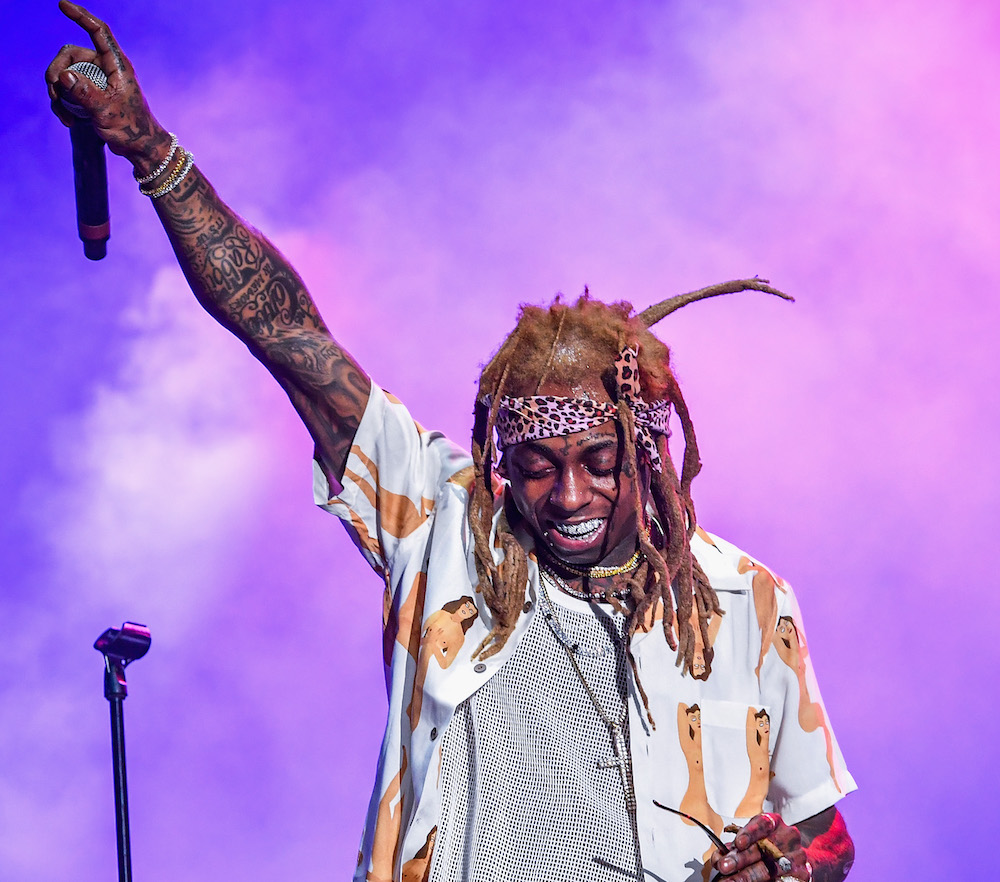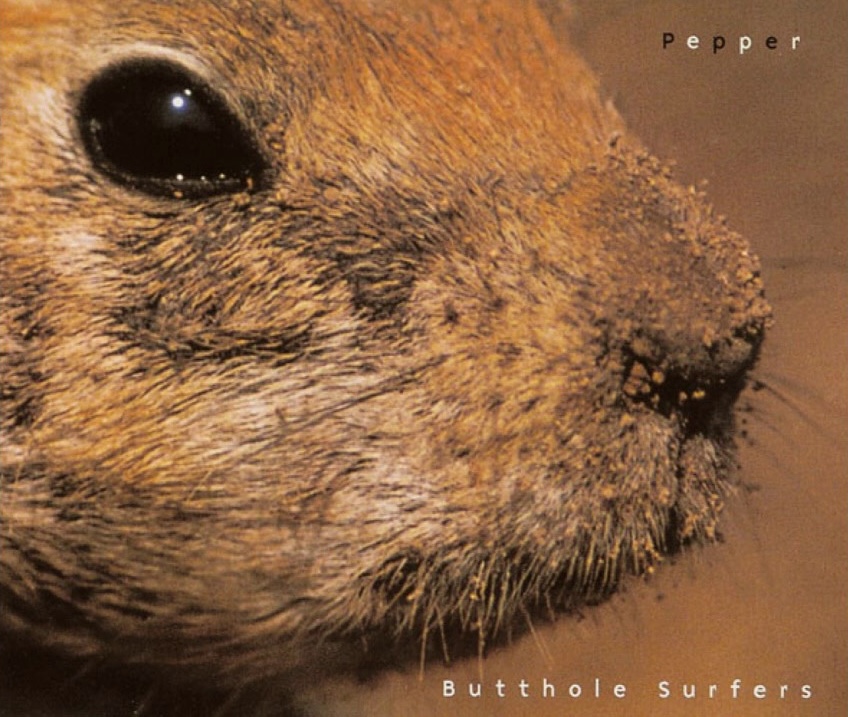Here's how I think about it: A new Tha Carter album is like a new Die Hard movie. We can't expect it to be like the first three. We can't even expect it to get close. That's not realistic. Bruce Willis can't jump off of buildings like that anymore. Maybe we don't even want to see him try. And anyway, they don't make movies like that anymore. The system has changed.
Mostly, we just want Willis to give us some echo of that old feeling. We want maybe a scene or two like the bit in Live Free Or Die Hard where he uses a police car as a projectile to explode a helicopter. We want to see that old shit-talking persona, a little more seasoned and grizzled, coming to life in front of us again. We know that we're receiving a new Die Hard movie in a time when Die Hard ripoffs have reached market saturation. We know that the Die Hard ripoff has become the dominant form of action-movie storytelling. We know that a new Die Hard is inevitably going to come off as at least a little bit of a Die Hard ripoff.
If you think about it like that, Tha Carter V is an unqualified triumph. It's better, for instance, than either of the two latter-day 21st-century Die Hard movies. It's more of a Liam Neeson Non-Stop "Oh shit, that was pretty good!" situation. The new album exists in conversation with all of Wayne's past work, and given that Wayne is easily the single most influential rapper of this century, it also exists in conversation with all the music that Wayne has inspired. The two Mannie Fresh beats are total unalloyed joy; they hit like Reginald VelJohnson returning for another Die Hard. (Meanwhile, the Mack Maine chorus is more like Dennis Franz coming back as his Die Hard 2 character: He's here, huh? Well, fine, I guess.) When a wild-eyed Kendrick Lamar shows up, it's like getting a cameo from Keanu Reeves playing his Speed character. When Travis Scott shows up, it's like getting a cameo from Jean-Claude Van Damme as his Sudden Death character.
But then there's the added context of this whole thing. Wayne initially announced Tha Carter V in 2012. He planned to release it in 2014. What followed was a nasty, bitter protracted legal feud that always threatened to erupt into actual violence. After the death of his father, Wayne had taken to referring to Birdman, his collaborator and label boss, as his father. Now he'd learned that his surrogate father was stealing his money, and this father figure was wrangling to prevent him from releasing music, the one thing he seemed to really care about. So Wayne spent years in frustrated stasis, practicing skateboarding tricks and cranking out underwhelming mixtapes. It's like some asshole DA had issued a court order preventing John McClane from going on asskicking adventures.
With that in mind, everything about Wayne's big return feels miraculous. It's miraculous that Tha Carter V even exists at all, that Wayne was able to disentangle himself from all the legal red tape surrounding him and release an album. It's miraculous that Wayne was able to put out a big event album so soon after the legal battle ended, that he had so much music saved up that he was able to put out a vast 90-minute chunk of music without much forewarning. (Before Tha Carter V came out, there were a lot of jokes about how outdated Wayne's shelved 2014 album was going to sound. People thought he'd really be rapping about hoverboards and Breaking Bad or whatever, but Wayne has never stopped recording.) It's remarkable that the audience for a new Lil Wayne Carter album is still there, that the album is already a certified first-week smash. It's remarkable that Wayne was able to return to this whole world, full of his imitators, without sounding rusty or out-of-step. And most of all, it's miraculous that Tha Carter V is as good as it is.
The Wayne of Tha Carter V is not the same Wayne that went on that demonic mid-'00s mixtape run. He doesn't have that sense of deranged purpose anymore. He doesn't latch down on words like he's angry at them. He doesn't seem to bend reality around himself every time he has a new idea. All of Wayne's ideas are old ones, and the rap mainstream has finally internalized all his most way-out impulses. Few were really hoping for a return to that old Wayne, and nobody was expecting it.
But it's closer than you might expect. Wayne still has a way with a nasty little one-liner: "At your front door with a gun stowed / ‘Knock knock, who’s there’ is how it won’t go." He still comes up with these lines that have their own logic, lines that demand that we sit there and think about them for a minute: "AK-47 make a sitting duck stand up," "Found a halo in her trash but she don’t talk about her past," "Take the T off Tunechi and look at it as the crucifix, bitch," "Wherever I spit at, a tree grow." He still raps about getting his dick sucked with more glee and inventiveness than any other rapper in history: "Swallowing all my unborns, say it taste like a love song," "She gon’ suck the prototype, then swallow all the proteges." And he still has a dizzy, infectious love of words and the sounds that they make: "Tunechi Tune a lunatic, my goony goons the gooniest / Run inside your room and kill you and who you rooming with."
With Tha Carter V, Wayne becomes one of the few A-list rappers who has released an album in 2018 without hilariously botching the rollout. He didn't release any tracks beforehand. Instead, he just put out the vast chunk of music and trusted that the world was ready for it. On the album, he raps over a whole lot of different kinds of beats, pulling in tracks from producers like DJ Mustard and Metro Boomin without ever relying on those beats for hits. Stars appear, but they all seem happy to be there. (Kendrick Lamar, in particular, seems to take the challenge of rapping on a Lil Wayne song very, very seriously.) The mastering is lovely; you need to hear the album in a car to properly appreciate how those bass-tones have been sculpted.
There are bad songs and bad ideas on Tha Carter V. The world, for instance, would've been just fine without the terrible space-sex punchlines and Nicki Minaj R&B hook-singing of "Dark Side Of The Moon." But Wayne sounds energized and engaged. He's got family on the album: his mother acting as de facto host, his daughter singing on one song, his son's mother Nivea singing on another. Wayne sings hooks without getting too addicted to the idea of singing. Blessedly, he never picks up a guitar. A few times, he raps breathlessly for an entire song. And on something like "Open Safe," you don't realize until the song is over that there hasn't really been a chorus. You don't notice because almost everything he says sounds like a hook.
If The Carter V marked Wayne's return to high-level rap for rap's sake, that would be enough. But there's more going on, too. The past few years have been hard for Wayne. People have tried to kill him; someone, for instance, shot up his tour bus. He's suffered from debilitating, life-threatening seizures. And he's been unable to release music the way he wants, which, for an artist as relentlessly productive as Wayne, is its own kind of torture. There are moments on Tha Carter V where he vents that distress in affecting ways: "Sometimes I fear who in the mirror, that nigga weird / He done died so many times but still here / Why am I here?" And on the album-ending track "Let It All Work Out," Wayne tells a story he's never told before, about the time he attempted suicide at age 12.
Wayne has talked about the time he shot himself in the chest, but he's always described it as an accident. On "Let It All Work Out," Wayne corrects that history. As it turns out, his mother had told him that he wasn't allowed to rap anymore. (Wayne was a rap prodigy, signing with Cash Money as a child.) Upon getting this verdict, Wayne found his mother's gun, put it to his chest, and fired. He only barely missed his own heart. And on the song, he describes that scene unflinchingly: "Nobody was home to stop me, so I called my auntie / Hung up, then put the gun up to my heart and pondered / Too much was on my conscience to be smart about it / Too torn apart about it, I aim where my heart was pounding." To hear Wayne tell it, he talked to God in his dying moments, and God "made a prophet."
Decades later, another parent figure prevented Wayne from rapping. He might've come close to dying again, too; those seizures landed him in the hospital more than once. And now we once again get to hear Wayne, refreshed and purposeful, ready to reclaim his spot. He's not operating at peak capacity. Compared to his mixtape peak, the Wayne of Tha Carter V is maybe 80% of what he once was. But an 80%-strong Wayne is still a problem. Yipee-ki-yay, motherfucker.
FURIOUS FIVE
1. YBN Cordrae: "Target"
The art of rap storytelling isn't dead! Yet! This plays out like the Mythbusters version of the second "99 Problems" verse, and YBN Cordrae remains one of the only generation-Z rappers with both the ability and inclination to impress old people like me.
https://youtube.com/watch?v=flCC8bFagB8
2. The Alchemist: "94' Ghost Shit"
Speaking of old people! Conway: "Heading to the top spot they said was not obtainable / Because the way the face look from when the nigga shot my cranial area / How I'm still living? That shit is not explainable." The beat is a neck-snapper, of course. You wouldn't expect anything less.
3. Jay Critch & Harry Fraud: "Thousand Ways"
We might be entering a whole new era -- one where New York rappers don't sound embarrassed to be New York rappers. Fingers crossed.
4. DDG: "Young, Rich & Black"
A song like this shouldn't need a goofy begging-for-virality video to sell it. A song like this can sell itself.
5. Young M.A: "Pettywap"
The momentum has slowed, but if Young M.A had come out with this two years ago, it would be game over. It might still be game over.
IT WAS ALL GOOD JUST A WEEK AGO
reminder that troy aikman looks like white jay z pic.twitter.com/VXj1TVVA4u
— trey (@TreyfromNY) September 28, 2018






